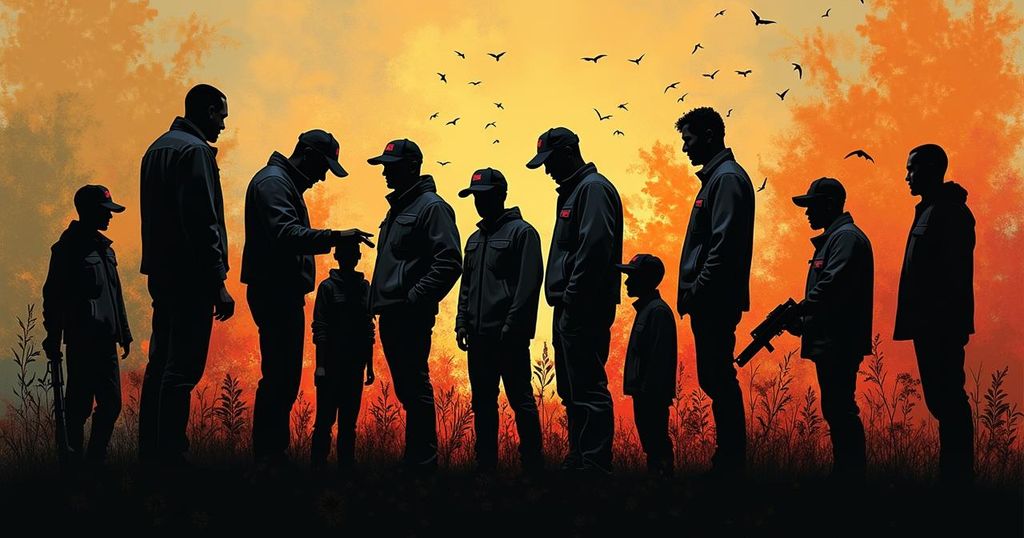President Nayib Bukele defended his government’s anti-gang efforts at the UN, claiming significant improvements in public safety following the detention of 82,000 alleged gang members under a state of emergency. He asserted that El Salvador has transformed from a violent nation to the safest in the Western Hemisphere, although human rights groups have criticized his methods for potentially violating civil liberties.
During a recent address at the United Nations General Assembly, President Nayib Bukele of El Salvador lauded the outcomes of his government’s aggressive anti-gang initiative, asserting that it has significantly improved safety in the nation. He proclaimed, “In the last five years, El Salvador was reborn; we returned the streets of our country to our people.” In March 2022, President Bukele implemented an extensive campaign against gang violence under a state of emergency, which allowed for mass arrests without a court order. This initiative has resulted in the detention of approximately 82,000 individuals identified as alleged gang members. Bukele contended, “Some say that we have imprisoned thousands, but the reality is that we have freed millions. Now it’s the good people who live freely, without fear, with their freedoms and human rights fully respected.” He emphasized the transformation of El Salvador from being deemed “the murder capital of the world” to now positioning it as the “safest country in the entire Western Hemisphere.” He described the anti-gang crusade as “the greatest challenge our nation has ever overcome.” However, human rights organizations have expressed concerns regarding the methods employed, citing reports of wrongful detentions and unfavourable prison conditions. President Bukele characterized El Salvador in the past as “the country of the gangs (maras),” but argued that his policies have revitalized national security. He remarked, “We returned the streets of our country to our people and established a flourishing tourism industry, hosting international events for surfing, sports, and entertainment. We gave thousands of Salvadorans who fled from war and poverty a country to return to.” Furthermore, he asserted the protection of political rights and freedom of expression in El Salvador, stating, “In El Salvador, we don’t imprison our opposition, we don’t censor opinions, we don’t confiscate the assets of those who think differently, we don’t arrest people for expressing their ideas.” He reiterated the commitment to safeguarding civil liberties, claiming, “In El Salvador, your freedom of expression, as well as your private property, will always be protected.”
El Salvador has grappled with pervasive gang violence for decades, particularly from infamous groups known as maras. In recent years, President Nayib Bukele has taken a decisive stance against this violence, launching a campaign that seeks to reduce crime rates through stringent law enforcement measures. His government declared a state of emergency and permitted military and police forces to undertake aggressive actions against suspected gang members, claiming it to be crucial for restoring order and safety. While the government presents these measures as necessary for national security, this approach has drawn criticism from human rights organizations who are concerned about the potential for abuses and wrongful detentions. Understanding this context is essential in evaluating the implications of Bukele’s statement at the UN and the ongoing debate surrounding his presidency’s impact on civil liberties and crime in El Salvador.
In summary, President Nayib Bukele’s presentation at the United Nations highlighted his administration’s claims of success in combating gang violence in El Salvador, asserting a dramatic transformation of the country’s security landscape. Despite his assurances regarding the protection of freedoms and human rights in the wake of his policies, the ongoing concerns from human rights groups about the implications of his government’s tactics remain a central issue. The balancing act between securing public safety and upholding civil liberties continues to be a significant challenge for the nation.
Original Source: ticotimes.net







